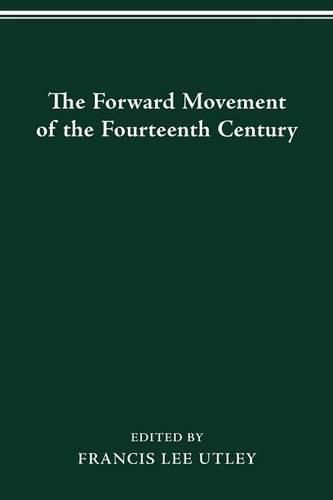Readings Newsletter
Become a Readings Member to make your shopping experience even easier.
Sign in or sign up for free!
You’re not far away from qualifying for FREE standard shipping within Australia
You’ve qualified for FREE standard shipping within Australia
The cart is loading…






This title is printed to order. This book may have been self-published. If so, we cannot guarantee the quality of the content. In the main most books will have gone through the editing process however some may not. We therefore suggest that you be aware of this before ordering this book. If in doubt check either the author or publisher’s details as we are unable to accept any returns unless they are faulty. Please contact us if you have any questions.
The papers collected in this volume emphasize the importance of the fourteenth century to the development of mediaeval institutions. Harry Bober presents a convincing case for regarding the period of Rayonnant Gothic architecture in France, not as a hiatus between High and Flamboyant Gothic, but as one in which new architectural aims were pursued. Grace Frank, in a critical look at French literature of the century, rejects much of the work of the court poets as little more than sterile imitation, but sees in the drama of the period the beginnings of a real and solid dramatic tradition. In his account of the college system in the fourteenth-century universities, Astrik L. Gabriel discusses the intellectual, moral, and social aspects of mediaeval college life, and observes that the increased demand for learning created problems that were similar to our own. Alan Gewirth considers the fourteenth century a particularly appropriate period in which to examine the relationship between philosophy and political thought, for during this period philosophers were closely involved in the practical political issues of the time. In the final article, George P. Cuttino discusses the Modus tenendi parliamentum, one of the most significant documents in the history of the growth of English representative government. A translation of M. V. Clarke’s text of the English version of the Modus appears in an appendix. Francis Lee Utley is professor of English at Ohio State University. He is the author of The Crooked Rib, the Ninth Supplement to Wells’ Manual of the Writings of Middle English, and co-editor of Studies in Biblical and Jewish Folklore.
$9.00 standard shipping within Australia
FREE standard shipping within Australia for orders over $100.00
Express & International shipping calculated at checkout
This title is printed to order. This book may have been self-published. If so, we cannot guarantee the quality of the content. In the main most books will have gone through the editing process however some may not. We therefore suggest that you be aware of this before ordering this book. If in doubt check either the author or publisher’s details as we are unable to accept any returns unless they are faulty. Please contact us if you have any questions.
The papers collected in this volume emphasize the importance of the fourteenth century to the development of mediaeval institutions. Harry Bober presents a convincing case for regarding the period of Rayonnant Gothic architecture in France, not as a hiatus between High and Flamboyant Gothic, but as one in which new architectural aims were pursued. Grace Frank, in a critical look at French literature of the century, rejects much of the work of the court poets as little more than sterile imitation, but sees in the drama of the period the beginnings of a real and solid dramatic tradition. In his account of the college system in the fourteenth-century universities, Astrik L. Gabriel discusses the intellectual, moral, and social aspects of mediaeval college life, and observes that the increased demand for learning created problems that were similar to our own. Alan Gewirth considers the fourteenth century a particularly appropriate period in which to examine the relationship between philosophy and political thought, for during this period philosophers were closely involved in the practical political issues of the time. In the final article, George P. Cuttino discusses the Modus tenendi parliamentum, one of the most significant documents in the history of the growth of English representative government. A translation of M. V. Clarke’s text of the English version of the Modus appears in an appendix. Francis Lee Utley is professor of English at Ohio State University. He is the author of The Crooked Rib, the Ninth Supplement to Wells’ Manual of the Writings of Middle English, and co-editor of Studies in Biblical and Jewish Folklore.